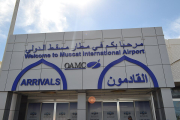
Members of Parliament have criticized the European Union for inserting the name 'Islas Malvinas' in a treaty signed in Brussels, referring to the Falkland Islands, as a 'petty' and 'daft' move to
retaliate against the UK for Brexit. British Foreign Secretary, James Cleverly, has sought clarification from European Council President, Charles Michel, but the request was denied.
The Falkland Islands, situated in the South Atlantic Ocean, have been at the center of a long-standing dispute. The archipelago saw a brief but intense conflict, the Falklands War of 1982, when Argentina's military dictatorship invaded, resulting in the loss of 255 British servicemen.
A document released after a two-day summit between the EU and the Celac, a bloc comprising 33 Latin American countries, used both 'Islas Malvinas' and the Falkland Islands to describe the British Overseas Territory. While some argue that this declaration supports Argentina's claim over the islands, others see it as a provocative move against the UK, fueling tensions.
Several MPs expressed concerns about the EU's choice of words, stating that the organization's action undermines democratic principles and disregards UN mandates on the right to self-determination. They believe that the EU's decision to refer to the islands as 'Islas Malvinas' is an attempt to punish the UK for leaving the bloc.
While the EU maintains that the Falkland Islands are British, the use of 'Islas Malvinas' in the treaty has been deemed unnecessary and unwelcome by the UK's Foreign Office. The Falkland Islanders, who voted in a referendum a decade ago to remain a part of the UK, remain steadfast in their commitment to British sovereignty.
Despite the Argentine government's efforts to lobby the EU, the UK and many other nations continue to recognize the Falkland Islands' status as a self-governing overseas territory. Negotiations over the islands' sovereignty have been contentious, and the EU's recent move adds to the complexity of the situation. Photo by Victor, Wikimedia commons.







































